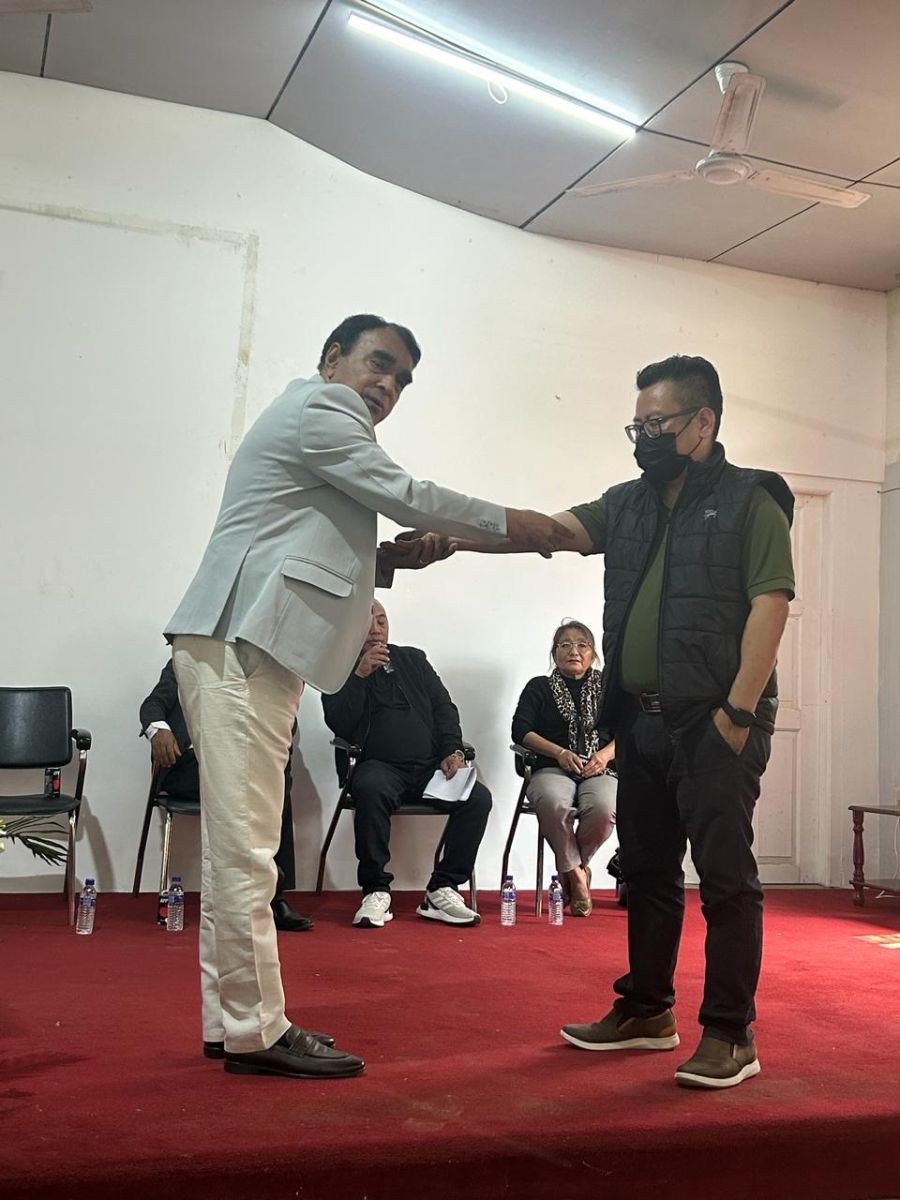Dr SK Dey demonstrating how to examine nerves during a orientation training on leprosy for medical officers and health workers under Dimapur, Niuland, and Chümoukedima districts at District Hospital Dimapur from February 27-29.

Dimapur, March 3 (MExN): Leprosy programme had taken a backseat since its elimination in 1998, however, due to the resurgence of cases in Nagaland, health workers to intensify their surveillance and identify new cases for early intervention and treatment, stated Chief Medical Officer (CMO) Dimapur Dr Limatula Aier.
She was speaking during orientation training on leprosy for medical officers and health workers under Dimapur, Niuland, and Chümoukedima districts held at District Hospital Dimapur from February 27-29. It was organised by the National Leprosy Eradication Programme, Dimapur.
Meanwhile, resource person and State Leprosy Consultant Dr SK Dey oriented the trainees on case detection and management of leprosy.

He stated that leprosy is caused by a bacterium known as mycobacterium leprae and though a communicable disease, he pointed out that transmission is very slow and touching a patient or even living with them will not cause infection.
Stating that leprosy affects the nerves and the skin, Dr Dey demonstrated how to examine suspected cases and check if their nerves have been affected or not.
It is essential to eliminate leprosy as unlike other communicable diseases, it causes deformity, he added.
He further urged the trainees, as health workers, to not harbour any discrimination towards leprosy patients, instead give efforts in spreading awareness to eliminate stigma and discrimination associated with the disease.
Only with the elimination of stigma and discrimination, leprosy can be fully eradicated from the state, he added.
The Consultant also stated that the main objective of the programme was to eradicate leprosy by 2030, and achieve Zero Transmission by 2027 through Leprosy Case Detection Campaign.
He encouraged the health workers to continue working tirelessly and once again be the first state the country to eradicate leprosy from the state, informed a press release from Dr Lhishelo Tsuhah, Zonal Leprosy Officer & CD-II, Dimapur.






